Views on the Holy Spirit
in the Life of the Believer
by Bruce Daugherty
The theological orientation of James A. Harding envisioned a dynamic role for the Holy Spirit in the life of the believer. ". . . at Acts 5:32, Peter speaks of “the Holy Ghost, whom God hath given to them that obey him.” From this it is manifest that the Spirit is given to the true believer, to him whose faith has been “made perfect” by works; not to the man of the world, who, Jesus says, cannot receive him; but to the child of God." (Harding, 114). For Harding this meant an active, personal indwelling which was more than the Word and was “an enabling presence in the life of the Christian.” (Hicks, n.p.)
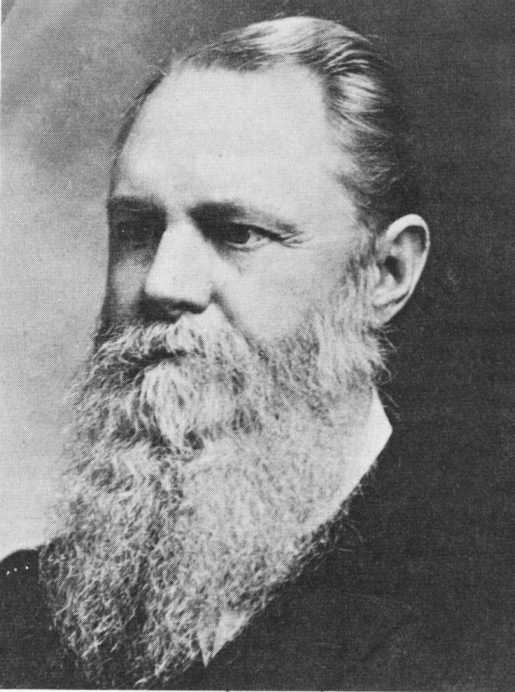
James A. Harding
In contrast to this view, R. L. Whiteside wrote: “In numerous passages it is said that the Holy Spirit dwells in the child of God, but I do not feel warranted in saying that this is done separate and apart from the word of God.” (Whiteside, 215).
What was the conception of the work of the Holy Spirit in the life of a Christian by the editors/writers in the Christian Leader? To make this assessment, this section will examine articles speaking of the indwelling of the Spirit and articles that deal with the subjects of sanctification and holiness. It will also look at some claims made about the Holy Spirit by missionaries in China and Brazil in the period and the subsequent reaction to those statements by two of the Leader editors.
The subjects of sanctification and holiness received considerable attention from Leader writers and contributors in the period being studied. The majority of articles addressing these subjects however, are in the context of combating doctrinal errors of those who separated sanctification from justification and viewed the sanctified person as overcoming his “born in sin state” and achieving “sinless perfection.” (Hall, Justified, 6). Several articles were dedicated to defining sanctification and pointing out the Scriptures which unite sanctification with cleansing, forgiveness, and justification. Discussion of the role of the Holy Spirit in these articles is mostly confined to the Spirit’s role in conversion and comment little on the Spirit’s role in the life of the believer. Flavil Hall’s expression of the Spirit’s work is typical: "The Holy Spirit sanctifies only by telling people in the Gospel Word what to do to be sanctified - cleansed, separated from the world and set apart to the service of Christ - and therefore, when they do what they are told to do the divine work is ascribed to the Word." (Hall, Sanctification, 6).
A few exceptions, however, to this typical pattern on the Spirit’s role in the life of the believer appear. Fred Rowe expressed his disappointment that “some of our learned brethren have not stressed the scripture ‘our body is the temple of the Holy Spirit’.” Rowe stated: "When we consider the beauty and the perfectness, as well as the divinity of our blessed Lord, and realize that his Spirit takes his place with us, . . . I feel that we should regard our bodies as the most sacred vessel in all the earth. Think of it brethren! The Spirit of our blessed Lord which he said he himself would give, dwells in these bodies of ours!" (Rowe, 2). Rowe believed he knew why preachers did not stress this aspect of the Christian life. “I feel that too many of our preachers hustle for converts without developing permanent additions.” For Rowe, preaching in many meetings failed because of a lack of teaching on the “nature and work of the Spirit in the convert’s life.” Rowe exhorted his fellow preachers, elders, and editors to give emphasis to “the Spirit side of our Christian lives.” Such an emphasis was essential. “The presence of the Spirit is as essential to spiritual development and growth as a soul or the breath of life is necessary to our physical development and growth.” (Ibid.).
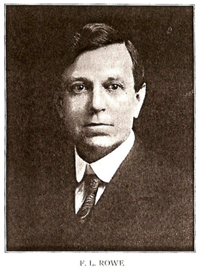
Ira Moore believed that something very important was at stake in the understanding of the gift of the Spirit offered on the day of Pentecost. He was writing in response to S. H. Pate, an elderly brother who believed that the gift offered at Pentecost was a miraculous measure of the Spirit which was not to be offered to or expected by modern believers. Moore expressed his disagreement and why he thought it was so important an issue: "Bro. Pate gives every evidence of sincerity and is evidently a devout student of the sacred Word. He has been reading that Book for a longer series of years than I have lived. I have therefore the most profound respect for him and his views. Were the subject on which he writes an unimportant one and did not operate against the integrity of the sacred Book and against the universality of Peter’s answer to the thousands, I would permit it to pass without notice, even if I did not fully agree with him." (Mooore, 4). Moore affirmed that Peter’s offer of the gift of the Holy Spirit (Acts 2:38-39) was “to everyone who, believing in Christ, repents and is baptized unto the remission of sins.” Moore went on to say, “Just as long, then, as sinners are required thus to obey, just that long is this gift of the Holy Spirit to be enjoyed, whatever it may be.” Moore distinguished between the “gift” and the “gifts of the Holy Spirit” as spoken by Paul to the Corinthians. He also said this gift of the Spirit was not the baptism of the Spirit, because the baptism of the Spirit was given without conditions, while the gift of Acts 2:38 was on the condition of “believing, repenting and being baptized.” Moore believed that an investigation into the “promise” mentioned in verse 39 would help clarify the issue. "He is not making a promise of his own to them, but is referring to one already on record and with which they were familiar. This makes it necessary for us to look into the prophecies of the Old Testament for the promise." (Ibid.). Moore believed these Old Testament prophecies pointed to the purity that would be the believer’s as a result of obedience to the Gospel. He referred to Isaiah’s promise of a “high-way” over which the “unclean shall not pass,” but those who were “redeemed” or “ransomed” (Isa. 35:8). In Isaiah 45:17 the prophet spoke of promises of “Israel’s everlasting salvation.” Isaiah 55:20-21 spoke of the promised Redeemer who would bring a covenant where God’s Spirit would be with them. Malachi 4:1-2 promised a cleansing, purifying fire which would destroy the wicked but it would be a day of healing and joy for the righteous. Moore stated that this was not a picture of final judgement, but the conditions of the gospel age. "A cleansed, purified, renovated spirit will direct the body and all its members into a pure, clean, renovated life. But the flesh itself will be the same after this takes place that it was before. Now shall we regard this purified, cleansed, renovated, saved, holy spirit in man an unimportant item?" (Ibid.). Moore believed that the prophecies of old were fulfilled in the conditions proclaimed by the Apostles. Compared to this even the miraculous gifts of the Spirit paled in significance. "Even the power to speak in the tongues of men and angels, or to remove mountains is nothing compared to having a spirit within that is “purified by obedience to the truth,” a spirit possessed of that charity or love so highly commended by the apostle." (Ibid.). For Moore, to deny this understanding of the Spirit was to deny the cohesion of the Old and New Testaments and to be unappreciative of the purified condition one received upon submission to the Gospel.
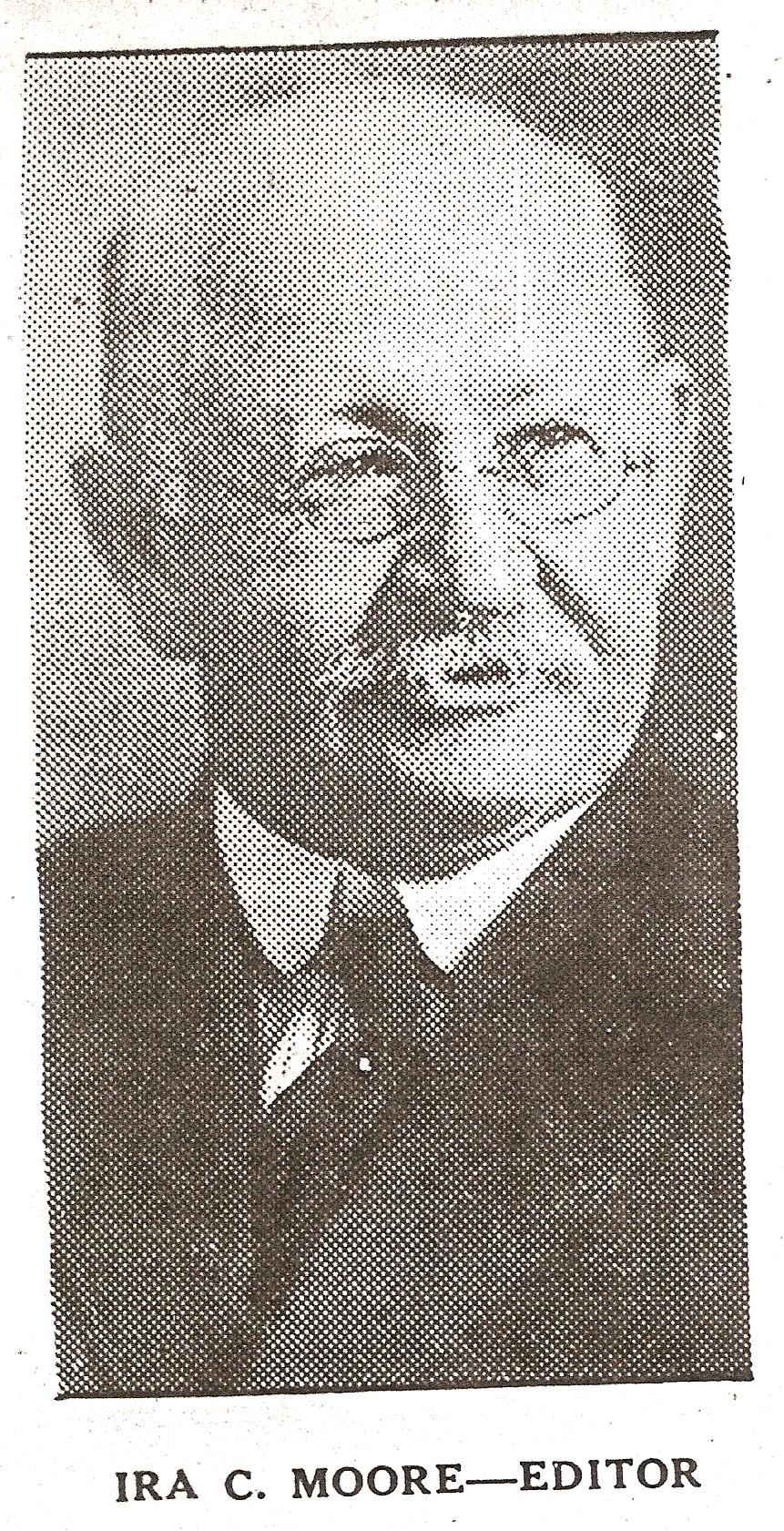
Surprisingly, the two former students of Lipscomb on the Leader staff shared views of the Spirit’s indwelling through the means of the Word. T. Q. Martin’s reply to a letter asking for an explanation of the Spirit’s work in the life of a Christian was brief but to the point. Martin compared the work of the Spirit to an attorney who informs one bequeathed by a will of the gracious provisions of the estate and the necessary steps to take to come into possession of it. He said that there would be no danger of confusing the inheritance with the attorney furnishing knowledge of it. He went on to state: "The Holy Spirit reveals the gracious system of divine economy and points out to fallen man the steps necessary on his part to become a partaker of the great blessings therein contained. He points out to the Christian his daily duty and guides him on to the haven of rest. All these blessed truths are revealed through the Spirit in the dear old Book. “Search the Scriptures"." (Martin, Spirit and Grace, 1).
In the same issue of the Leader, Flavil Hall went to great lengths to point out that being guided by the written Word meant one was guided by the Spirit. First Hall spoke of R. N. Moody’s meeting at Ooltewah, Tennessee and what one woman had said about his preaching. Moody asked how this elderly woman liked his preaching. Hall commented on her reply, “Ah, it is nothing in the world but the old, dry Scriptures,” a very favorable comment unconsciously made. Many are afraid their sermons will be dry, and hence they talk principally of things unknown to the gospel word - God’s power to salvation." (Hall, Jul.11, 1916, 6). Then Hall referred to an editorial by Barto McFarland, editor of The Gospel Worker, published at Rossville, Georgia. McFarland did not like Hall’s criticism of his position that the Spirit was “our guide rather than the written word.” McFarland replied that the angels’ words were appropriate to Hall”s views on the Spirit: “Why seek ye the living among the dead?” McFarland went on to compare Hall’s views to a foreigner who had never eaten a watermelon. Because of his ignorance of it, he had begun eating the rind, then threw it away having only tasted the outer shell. McFarland stated: "We prefer the meat to the rind; the substance to the shadow; the living to the dead. And we are glad our Lord is living and not dead; that he walks by our side, speaks to us, quickens, strengthens, guides and upholds us. And we are truly glad that he is just as near to everyone else, and only sorry, very sorry, for them if they have not found it out." (Ibid.). Hall responded, “In all my teaching I declare the Holy Spirit as our guide, but I show he guides by means of the Gospel Word that he preached through the apostles and wrote by the hand of divinely-inspired men.” Hall pointed out the passages which spoke of the Spirit’s guiding and speaking through the Apostles (Matt. 10:20; Jn. 6:7-13; 1 Cor. 2:13; Rev. 2 & 3). He then reasoned, “Since children are led by their parents when they obey the words of their parents, are not people led by the Spirit when they obey the words of the Spirit?” Hall also pointed to a case reported in the same issue of McFarland’s paper. It told of a man who was losing his eyesight and committed to memory as much of the Bible as possible. After losing his sight he had comforted himself by quoting from the written word. Why do this if all he needed was the indwelling Spirit, according to McFarland? Hall went on to point out the passages which spoke of the vitality of the Word (Lk. 8:11, 15; Jn. 6:63; Jn. 20:30-31). Hall then pointed to the power of the written word to help avoid the errors of denominationalism. "If the Bible and salvation can be compared to a watermelon, those who believe in being guided by the Gospel Word can agree about how to eat the melon, and they will experience its sweetness in following the instructions given therein, but those who claim to be guided by the Spirit without the word can never agree about how to eat the melon. The most of them think they must flavor it with some kind of sectarianism, but they can’t agree about what kind, and consequently they are split into warring factions." (Ibid.).
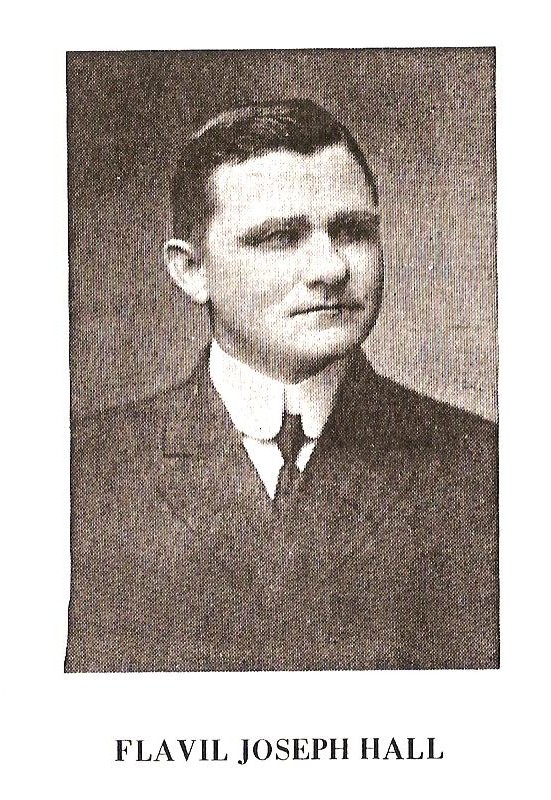
In the next issue of the Leader, Hall replied again to another editorial of McFarland. "Where the New Testament message goes it produces living faith, people are born anew of Christ and there is civilization and human kindness. Where it does not go all is darkness, superstition, and barbarism." (Hall, Jul. 18, 1916,6).
T. Q. Martin had another opportunity to explain the relationship between the Spirit and the Word when he replied to a question concerning the reception of the Spirit. Martin distinguished between extraordinary and ordinary gifts of the Spirit. Martin stated that he believed that Peter’s promise in Acts 2:38 was of the non-miraculous indwelling of the Spirit as Comforter in the life of the Christian. Martin went on to affirm, “Now the Holy Spirit convicts and comforts through the Word of God, the Holy Scriptures.” (Martin, Receiving, 1).
In 1929 and 1932 statements reported in the Christian Leader by missionaries working in China and Brazil respectively, brought sharp reaction from some Leader editors. N. B. Wright, working in China, requested the prayers from his brethren back home that he and his fellow missionaries might be “Spirit filled witnesses for God.” (Wright, 11). O. S. Boyer, working in Brazil, reported on a gathering of missionaries from various groups and declared, “Almost everyone took part and the Holy Spirit was poured out and His work manifested in the hearts of some of the most hardened unbelievers.” (Boyer, Report, 11).
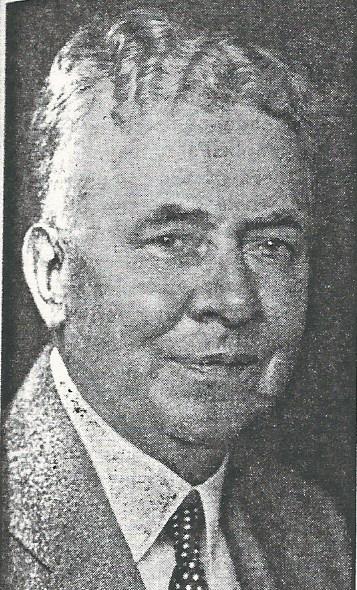
T. Q. Martin
The reaction to Wright’s request was somewhat subdued and brief in duration but it was indicative of what was to come later regarding Boyer. J. H. Horton wrote Fred Rowe a private letter, articulating his apprehension over Wright’s request. Rowe chose to print Horton’s letter. Rowe also requested T. Q. Martin to dedicate a full article to the subject. Martin’s article appeared two weeks later. Martin explained his problem with Wright’s request. "As for me, I could not consistently pray that any man on earth today should be a Spirit filled witness for God. That God had on earth Spirit filled witnesses, I most devoutly believe; but that they had or have any successors I most emphatically deny." (Martin, Witnesses, 9). Martin stated that only the Apostles had been chosen to be witnesses for Christ(Acts 1:8; 10:40-41). Only the Apostles were God’s witnesses (1 Cor. 15:15). And only the Apostles filled the necessary requirements of having seen the resurrected Lord (Acts 1:22; 1 Cor. 9:1). The Spirit came on the Apostles (Acts 2:1-4). And the Apostles fulfilled their mission (Acts 4:33). Martin denied any ill will toward Wright as he continued, "I do not know brother Wright, but I do know that I would not for any consideration do either him or anyone else an injustice. In his request he seems to be unmindful of the vital distinction between the ambassadors on behalf of Christ, the Spirit filled witnesses for God, and the uninspired preacher of the Word." (Ibid.). What was at stake for Martin was the credibility of the Bible’s testimony. "If the preacher of today has any message to deliver to men, different from that which is found in the Bible, the revealed will of God to man, all men who are familiar with the Book will doubt the divine authority for such message." (Ibid.). Martin denied that his view became a “word alone theory for conversion, sanctification, and guidance.” "Men are neither made Christians, led to Christ and into Christ, sanctified, which is being set apart to his service, guided in their service and worship to God, by the word without the Spirit; nor by the Spirit without the word. To me, no truth is more plainly taught in the New Testament than that the Holy Spirit through the word of God, leads men to Christ and into Christ, and then leads them every step of the way to the eternal reward." (Ibid.). Martin distinguished between the command “Be filled with the Spirit” (Eph. 5:18) and what the Apostles had received on Pentecost. He asserted that the Apostles had received a promise which Jesus had fulfilled which was different from a command “over which the saints have control.” Martin also asserted that the Ephesians passage was explained by Colossians 3:16. He believed, "They are two expressions of the same thing. If the Spirit through the word of Christ, the Word of God, dwells in me richly, abundantly, fills my heart, then to be filled with the word is to be filled with the Spirit." (Ibid.). While Martin did not fault Wright for his desire, his request seemed to be expressed “in the language of Ashdod” rather than in harmony with Bible expressions.
Charles M. Neal, editor for the Word & Work out of Louisville, came to Wright’s defense. He believed that Horton had rushed into print to accuse Wright of “sectarian ideas.” He declared this criticism to be “unjust and trifling.” Neal’s defense pointed to the fact that Wright’s language was Biblical and did not necessarily mean the man was pleading for “sectarian ideas.” (Neal, 8).

A short time later, Earl C. Smith of Weatherford, Oklahoma vouched for the character of Wright. "I am intimately acquainted with Bro. Wright, and I know he can be trusted to preach the gospel of God. I think that his article does not deserve the criticism the brethren offer." (Smith, 3). Smith was sure that Wright did not intend that his testimony was to be on the level of the Apostles or that he would preach anything that was not written in the word of God. Smith pointed to Scripture for ascertaining his meaning but he also pointed to the example of James A. Harding. "For instance, when I was a lad I heard James A. Harding preach; he would quote a promise of God, then he would tell experience after experience in his own life where God had proved himself faithful to that promise. Now, Bro. Harding must have been doing one of two things when he told those experiences: either he was bragging about his own faithfulness, or he was testifying that God is faithful. At least as far as its effect on my heart was concerned, it was a testimony for God and he was a witness for God." (Ibid.). Smith concluded that he was taking Wright’s request in this sense and would be praying for Wright and other missionaries to be “Spirit filled witnesses for God.” Fred Rowe was content to let the matter die as he appended a note to Smith’s article saying, “We believe that Bro. Neal’s article and Bro. Martin’s have covered the ground sufficiently, and we further believe that when the different writers and our brethren understand each other there will be no difference.” (Ibid).
The claim of Boyer in 1932 could not be so construed. Once again, T. Q. Martin led the wave of protest. While Martin did not question the “honesty, integrity, or sincerity” of Boyer, he did not believe Boyer’s claim. Martin countered the objections of those who might defend Boyer. "Someone may say to me, 'You were not there and how do you know what took place?' I am not claiming to know what took place. I am simply saying what I do not believe. I have read for many years just such reports from the ranks of sectarians claiming to have witnessed the outpouring of the Holy Spirit in the conversion of many souls, and I have been present on some occasions when people were wrought up to a high pitch of nervous excitement and claimed for this excitement, the power of the Holy Spirit . . .” (Martin, Next, 5). Martin believed that Boyer was following in the footsteps of the “Holy Rollers.” He believed these people were motivated by good intentions as they sought to remedy the lack of zeal and fervor in the various religious bodies, but he said their remedy was not Bible based but emotional. This emotional excitement was then attributed to the Holy Spirit. Martin went on to point out some logical conclusions of Boyer’s claim. If the Spirit was given out in such a manner to “hardened unbelievers,” then why was a missionary needed? Why not stay at home and pray for the Spirit to be poured out? Why go to Brazil and evangelize if Boyer was going to teach what the sects already in Brazil were teaching? (Ibid.). Martin believed Boyer’s claim was symptomatic of certain tendencies in some people. "I have noted, with grave apprehension, for some time, a speculative tendency among some of my brethren. I love them, and take no delight in opposing their teaching. A tendency toward speculation will inevitably lead to a disregard for God’s Holy Word. To stand firm for the uncorrupted teaching of the Book of books, has become unpopular, even among many who claim to speak where the Bible speaks, and to be silent where the Bible is silent." (Ibid.). Martin hoped Boyer would read his article and take it’s criticism in the spirit in which it was offered and “hereafter be more guarded in his language.” But Martin also declared, “If he believes in and teaches the direct operation of the Holy Spirit - one of the most gigantic errors in the religious world today - then he should look for support from those who endorse that teaching.”
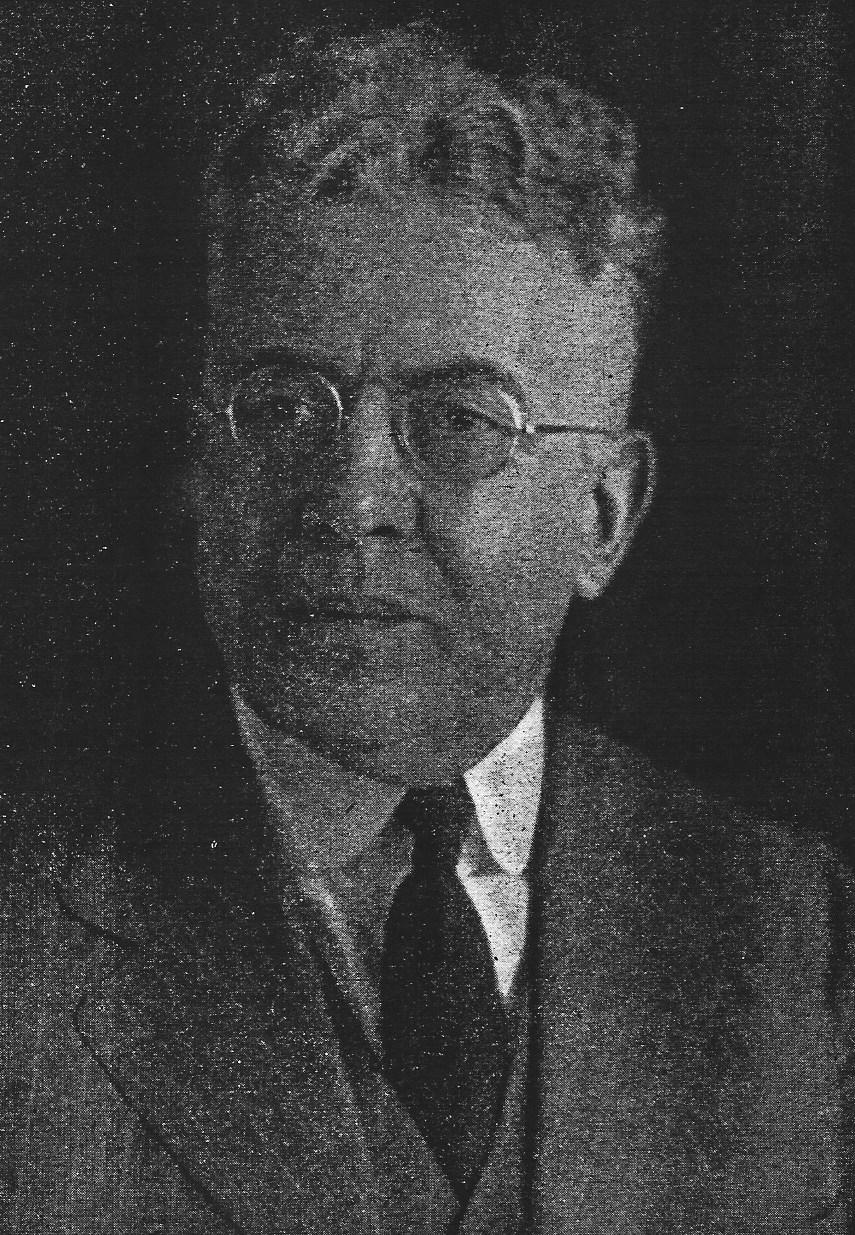
T. Q. Martin
Responses, both for and against Martin’s criticism of Boyer were quick to follow. First to reply was Flavil Hall who advocated a “charitable” view of Boyer’s intentions. Hall was not defending Boyer’s claim; he was simply defending his right to differ on a doctrinal point which in Hall’s mind did not interfere with the work and worship of the church.(Hall, Feb.16, 1932, 6). Hall and Martin exchanged several bitter articles with each other over this matter. One item brought out in their exchange was the fact that they now held different views concerning the indwelling of the Spirit. * "Brother Hall represents the lamented J. A. Harding as believing in 'a personal indwelling of the Holy Spirit apart from the Word.' Brother Hall may have information upon this matter that I do not have. This is not at all impossible. I was very intimately associated with the great man for many years. But I never learned from his public, oral teaching, his writing, or from conversation with him, that he thus believed." (Martin, Intended, 5). It would seem that Hall was more perceptive of Harding’s theology than Martin. But it also appears that Hall was inconsistent in light of what he had written earlier in the McFarland discussion.
Also coming to Boyer’s defense were the writers for Word & Work. (Chambers, 7). The Louisville churches had long been forerunners in the support and sending of missionaries for Churches of Christ. It was natural that they would defend the men they were supporting, but this defense, along with the strain over their millennial views only aggravated the relationship with the editors of the Leader.
As the situation between Martin and Hall became strained, Fred Rowe intervened, asking Hall and others to allow Boyer to answer for himself.(Rowe, Note, 6). Boyer’s reply did not come until the end of June. In it Boyer stated: "It was not until the last of April that I realized my wording of the report of the November meeting had objectionable words (about the pouring out of the Holy Spirit) - words that imply something I did not nor ever have believed." (Boyer, From, 11). Boyer seemed satisfied to let the issue rest with what had been written in the Leader up to that point.
Vindication of a sort for T. Q. Martin came two years later when articles appeared by O. S. Boyer and V. E. Smith claiming the baptism of the Holy Spirit and the direct operation of the Holy Spirit on the hearts of believers and unbelievers. (Boyer, Heart, 2 and Smith, 3). The churches in Louisville dropped their support of Boyer and Smith but they declared they would not disfellowship them. Boyer later joined a Pentecostal fellowship in Brazil. **
Leader writers held different views concerning the indwelling of the Holy Spirit. Fred Rowe appears to have held an indwelling position and lamented the fact that the subject was neglected. But Rowe is less perceptive when he downplayed the differences over the issue when Martin and Neal clashed over Wright’s report. T. Q. Martin left his indwelling position on previous issues to hold a position affirming the Spirit’s indwelling through the means of the Word. This was especially demonstrated in his reaction to the missionary reports of Wright and Boyer. Flavil Hall vacillated on his view as he affirmed indwelling through the Word in his discussion with McFarland, but later manifested a different view in his clash with T. Q. Martin. Ira Moore’s position is consistent with the Word only view. His understanding of the “gift of the Spirit” as a “cleansed, purified, spirit in man” is tied to the role of the Spirit operating through the Word to produce salvation (1 Pet. 1:22-23).
Works Cited
Boyer, O S. "Mission Report" Christian Leader 46 (Jan. 19, 1932):11.
_________. "From Brother O.S. Boyer" Christian Leader 46 (Jun. 28, 1932): 11.
_________. "Some Heart to Heart Questions" Christian Leader 48 (Jul. 10, 1934):2-3.
Chambers, Stanford. "Here I Am, Mark Me" Christian Leader 46 (May 10, 1932): 7.
Hall, Flavil J. "Is One Justifed Before He is Sanctified?" Christian Leader 38 (Nov. 4, 1924):6.
_________. "Sanctification Once More" Christian Leader 38 (Nov. 18, 1924):6.
_________. "Field Notes and Helpful Thoughts" Christian Leader 30 (Jul. 11, 1916):6.
_________. "Field Notes and Helpful Thoughts" Christian Leader 30 (Jul. 18, 1916):6.
Harding, James A. "The Holy Spirit - A Bible Reading" The Way (Aug. 1, 1899): 114-118.
Hicks, John Mark. "Harding, Boll, and Grace - The Nashville Bible School Tradition." (Notes from module 8, Restoration Theology Online Course), Harding Graduate School of Religion, Spring 2003.
Martin, T. Q. "The Holy Spirit and Grace" Christian Leader 30 (Jul. 11, 1916):1.
_________. "Receiving the Holy Spirit" Christian Leader 30 (Sept. 5, 1916):1.
_________. "Intended to be Final" Christian Leader 46 (Apr. 19, 1932): 5.
_________. "What Next?" Christian Leader 46 (Feb. 9, 1932): 5.
Moore, Ira C. "The Gift of the Holy Spirit" Christian Leader 34 (Apr. 20, 1920): 4.
Neal, "Unjust Criticism" Christian Leader 43 (Oct. 29, 1929):8.
Rowe, Fred. "The Inner Sanctuary" Christian Leader 46 (Apr. 26, 1932):2.
_________. "Publisher's Note" Christian Leader 46 (Mar. 29, 1932):6.
_________. "Vindication" Christian Leader 48(Aug. 7, 1934):7.
Smith, Earl C. "May Christians Pray that Our Missionaries be 'Spirit Filled Witnesses for God'?" Christian Leader 43 (Nov. 12, 1929):3.
Smith, Virgil. "The Baptism of the Holy Spirit" Christian Leader (Jul. 24, 1934):2-3.
Whiteside, R. L. Reflections. Privately published by Miss Inys Whiteside, 1965. (This book is a topical compilation of Whiteside's responses as Queries Editor of the Gospel Advocate).
Wright, N. B. "Mission Report" Christian Leader 43 (Oct. 1, 1929):11.
*It is interesting to note that in Hall and Martin's exchange of articles in March and April of 1932, both men appealed to the example of Harding for their respective positions. Perhaps there was more overlap in Harding's position on the Spirit and the Word than some students acknowledge today.
**Ira Moore responded to both articles in a series of editorials beginning July 24, 1934. Fred Rowe pointed out "the severe censures" that he and Martin had received for the handling of Boyer's earlier report. Rowe took his Louisville brethern to task for their contributions to the doctrinal departures of Boyer and Smith. "Vindication" (Aug. 7, 1934).
